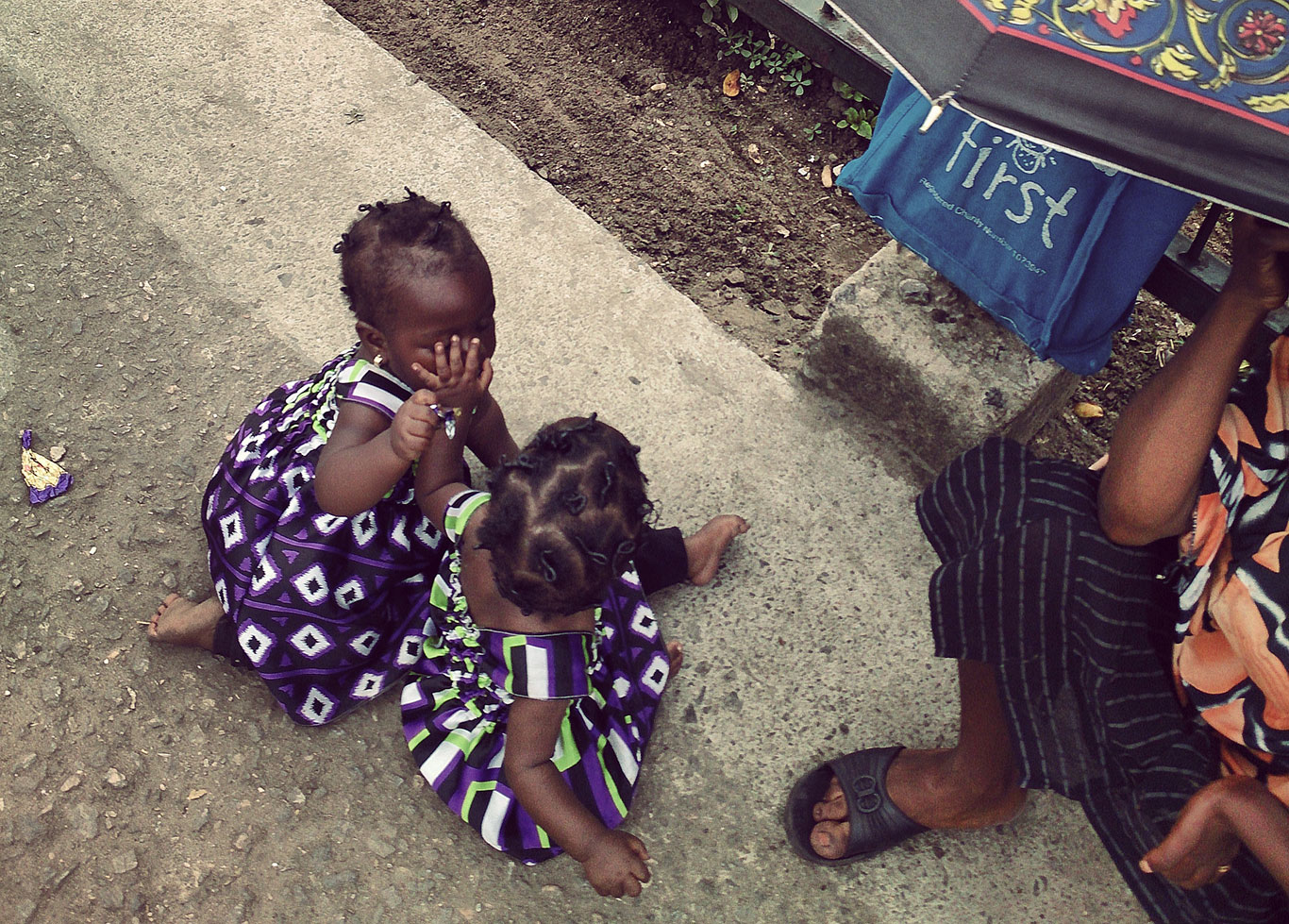
On a warm September evening, I am returning from the Passport Office in Lagos. At Obalende, I find a woman sitting under an umbrella. The woman’s face is hidden, but her bag of alms is not. At her feet are two babies. Girls. Clothed in beautiful purple, seated on the road, laughing and touching each other’s faces. I am torn towards two thought patterns on seeing the babies.
The first is that perhaps the woman is an upholder of a certain kind of tradition, which I have very poorly (for lack of better words at the moment) chosen to refer to as the ejire tradition, a tradition amongst some of the Yorubas that places twins as divine beings, to be taken seriously and treated with special spiritual attention. Sometimes these twins demand that their mothers beg for alms. And it is on this premise that I want to lean. I want to believe that that the babies will have a normal home. I want to believe that they will grow up like normal children.
I am standing in front of the babies, watching them poke each other in the face. The woman sees me and asks:
Uncle, se e fe ta ibeji l'ore ni?
I hesitate and drop a 50 naira note in a bag beside the woman. She lifts her umbrella and says:
Ese sir.
That is when I see her face. The left part is a scar. Burnt and charred. The eyes are sunken, absent.
The second thought pattern pulls me in as I walk away. This one says that the woman is simply a beggar with two beautiful babies. Girls clothed in beautiful purple. This one says that the future is bleak for the girls. They'll grow up on the road, its winds and horns will become their sounds.
Or is there hope?
Minutes later, in a bus from Obalende to Ajah, I am scribbling a poem in Evernote.
Is darkness not made of these?
Handmarks on walls
A referendum
Of voices, hope
Full, foolish—
Is darkness not made for dreams?
0 comments
Add a comment